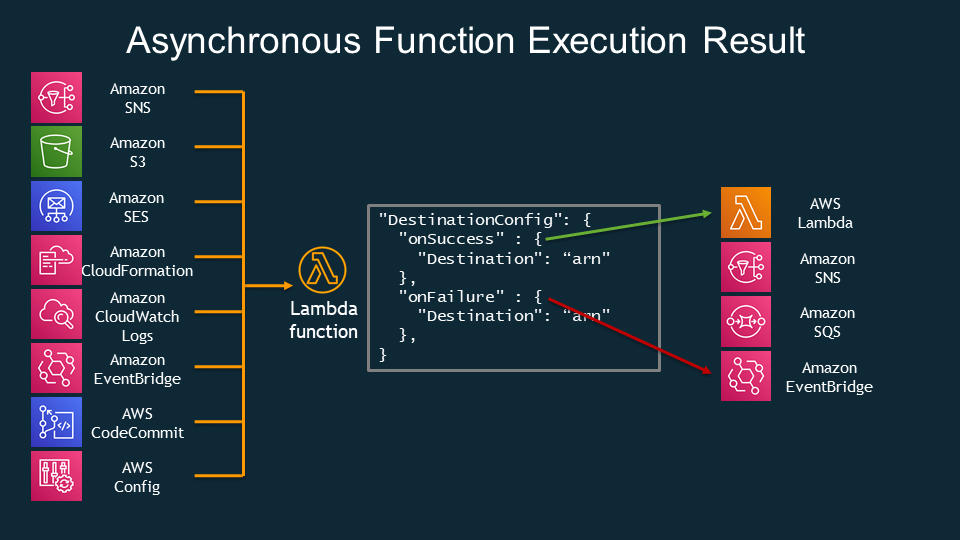AWS Compute Blog
Tag: Amazon EventBridge
Reducing custom code by using advanced rules in Amazon EventBridge
Amazon EventBridge allows you to route events between AWS services, integrated software as a service (SaaS) applications, and your own applications. Event producers publish events onto an event bus, which uses rules to determine where to send those events. The rules can specify one or more targets, which can be other AWS services or Lambda […]
ICYMI: Serverless Q4 2019
Welcome to the eighth edition of the AWS Serverless ICYMI (in case you missed it) quarterly recap. Every quarter, we share the most recent product launches, feature enhancements, blog posts, webinars, Twitch live streams, and other interesting things that you might have missed! In case you missed our last ICYMI, checkout what happened last quarter […]
ICYMI: Serverless re:Invent re:Cap 2019
In the week before AWS re:Invent 2019 we wrote about a number of service and feature launches leading up to the biggest event of the year for us at AWS. These included new features for AWS Lambda, integrations for AWS Step Functions, and other exciting service and feature launches for related product areas. But this […]
Introducing Amazon EventBridge schema registry and discovery – In preview
Today, AWS announces the preview of Amazon EventBridge schema registry and discovery. These are new developer tool features, which allow you to automatically find events and their structure, or schema, and store them in a shared central location. This makes it faster and easier to build event-driven applications. You can access the registry and generate […]
Introducing AWS Lambda Destinations
Today we’re announcing AWS Lambda Destinations for asynchronous invocations. This is a feature that provides visibility into Lambda function invocations and routes the execution results to AWS services, simplifying event-driven applications and reducing code complexity. Asynchronous invocations When a function is invoked asynchronously, Lambda sends the event to an internal queue. A separate process reads […]




